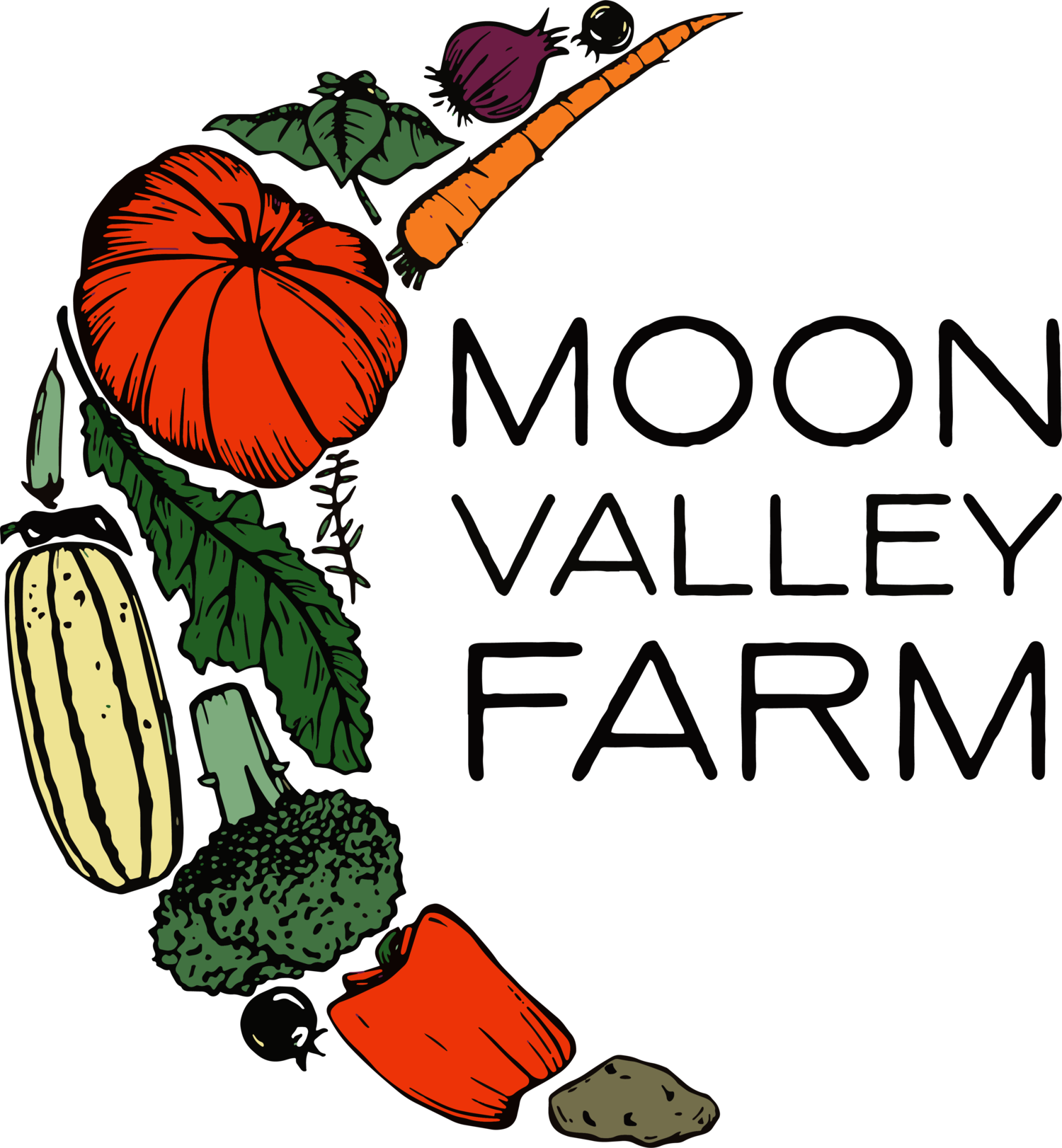Food Safety at our Farm
This February, we hosted 50 farmers and food system professionals at the farm for a 3 hour Food Safety workshop. Although we are not certified food safety experts, food safety is baked into every facet of our operation after taking dozens of classes to learn and improve our food safety skills and procedures across our 14 years in business. Here’s a bit of an overview on food safety and why we care!
What is food safety and why does it matter?
Food safety is all about mitigating and MINIMIZING the risk of foodborne pathogens, such as e. coli and listeria. Our food safety plan includes everything from farm maps to worker training, Standard Operating Procedures (SOP’s), sick guidelines for staff, how to monitor fields for possible contamination prior to harvest and how to ensure all food contact surfaces (and food contact adjacent surfaces) are cleaned and sanitized on a regular basis.
The biggest risks are always when biological contaminants come in contact with water sources – this can look like septic leaks, flooded manure piles or animal infestations in fields. All of the farm's activities, buildings, biologicals, sewage and wells are mapped out and detailed for how big of a risk they are for food safety.
The foods highest at risk for contamination are those foods that are generally eaten raw such as lettuces and berries, as they have high water content and cooking (like pasteurization) kills off most bad bacteria. For this reason we have even stricter food safety standards for produce such as lettuce, cucumbers, cherry tomatoes, and strawberries. .
I became a farmer to provide ultra-fresh, healthy and NOURISHING food for my community. It’s proven that outbreaks are PREVENTABLE with high food safety standards, so that’s what we commit to!
2. Laws and Certifications
Most farms are required by the federal Food Safety Modernization Act (FSMA) to comply with fairly rigorous food safety standards, worker trainings and recordkeeping. These laws are enforced on the state level. We passed our latest FSMA inspection in the spring of 2024.
Good Agricultural Practices, or GAP certification, is a voluntary certification that is very similar to the rules and requirements under FMSA – with the goal of minimizing the risk of microbial contamination of produce. Larger grocery chains and institutional buyers require GAP certification for their vendors.
FSMA is required and is basically the food safety “stick” - you get punished for non-compliance; whereas GAP is voluntary and is the food safety “carrot” - market doors open for compliance.
3. Water
Testing water sources annually, noting where water pools on your farm, creating berms and swales to divert and direct rain water, preventing leaks in plumbing and irrigation are all key parts of a good food safety plan.
At Moon Valley Farm, we use two wells, one for irrigation and one for wash water, and both are tested for contaminants and nitrates once a year. We’ve installed berms and swales to divert water from pooling in our fields during heavy rain events, grow on raised beds to help prevent flooding and use mulch (or living mulches) as much as possible. In our packshed, we have installed drains under wash stations to prevent pooling, and always wash and sanitize food contact surfaces.
4. Biological Contaminants
Many microbes are good for us – like those found in fermented foods – but bad microbes can be dangerous to our bodies or even lethal to the most vulnerable. At Moon Valley Farm, we don’t keep any livestock or poultry, which can be the highest risk of contamination sources on a diversified farm operation.
Our fertilizers often include animal–based products, such as fish emulsion, manures or chicken litter. To avoid any contamination with these, we always use the rules set by organic standards for incorporation into the soils at certain intervals prior to harvest (120 days prior to harvest for any raw manures, for example).
5. Worker Training
At Moon Valley Farm, your first day of work includes hand washing trainings, sexual harassment prevention trainings and depending on your role, cybersecurity trainings, harvest trainings and pack shed trainings.
Over the past 14 years, we’ve developed dozens of Standard Operating Procedures to make sure that when we train someone for a task, it is easy and accessible to recall how it’s done (with the SOP posted nearby) so that it can be repeated correctly every single time.
Our SOP’s include how and when to wash hands, how to mix sanitizer and cleaning solutions, how to wash and sanitize food contact surfaces, how to clean the sinks for washing greens – and dozens more! Most importantly, we have strict standards around hand washing to make sure our staff is always keeping their hands clean before handling produce!
What Can You Do?
We do our absolute best to ensure you receive the cleanest and safest produce possible, and we highly encourage you to do the same once the food hits your kitchen! Make sure your produce is refrigerated as quickly as possible once you receive it, and stored in the proper locations to ensure longevity (see our veggie storage guide here). Finally, please wash your produce before using! That is one of the best ways that you can take action to minimize the risk of contamination even further.
Thank you so much for your support!
Join our CSA!
We’d love to grow for you and are now accepting sign ups for our Year Round and Peak Season CSA! Have any questions about our CSA program? Reach out to support@moonvalleyfarm.net.






